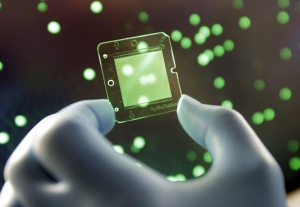 A recent article by Bradley Fikes in the San Diego Union-Tribune highlighted the progress achieved by a local leading biotech company, BioFluidica. Founded by Professor Steve Soper at Kansas University and headed up by CEO Dr. Rolf Muller, two veterans in the area of microfluidics research and product development, the company is effectively translating the inherent capabilities of lab-on-a-chip technology into the foundation of their cancer-screening products.
A recent article by Bradley Fikes in the San Diego Union-Tribune highlighted the progress achieved by a local leading biotech company, BioFluidica. Founded by Professor Steve Soper at Kansas University and headed up by CEO Dr. Rolf Muller, two veterans in the area of microfluidics research and product development, the company is effectively translating the inherent capabilities of lab-on-a-chip technology into the foundation of their cancer-screening products.
BioFluidica uses injection moulding to economically mass produce their plastic microfluidics chips. While injection moulding has been effectively applied to microfluidic products with ‘normal’ channel geometries (width similar to depth), BioFluidica’s device channels appear to be tall and thin, making high fidelity, high volume reproduction challenging. That they can use injection moulding for these devices is no mean feat; it is not a surprise to hear that they had to go through several manufacturers before finding one in Austria equal to the task
The devices are used to perform affinity-based assays of circulating tumour cells (CTCs), and work directly with whole blood, a distinct advantage in terms of cost and ease-of use, and also likely in terms of the quality of the assay results. BioFluidica estimates that lung biopsy screens would be reduced from $10,000 USD to roughly $5,000 using their technology.
